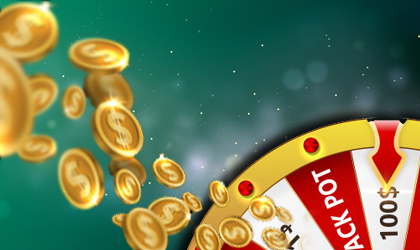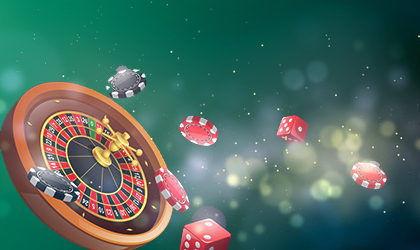The Wheel Deal

Andrew MacDonald 05:37 Feb 21st, 2006 Games
Does it bother you that a significant part of the casino business is in decline and could take the careers of many executives down with it? Me too.
A once-dominant aspect of a casino’s product line up is losing market share to gaming machines and valuable casino real estate is being turned over from pits of table games to rows and rows of slots. Why is this?
Green-Felt Jungle
 It’s because the table-games segment is in need of serious help. First, the games initially appear complex and are intimidating to learn, as the skilled staff and “knowledgeable” players go about their business. Second, the atmosphere around a table is often tense and uninviting. Third, entry-level, low-limit table games are often crowded and uncomfortable. Fourth, the stakes are often relatively high and it is unlikely that a person wanting to try the product will get perceived value out of a $20 or $50 purchase of $5 chips. That only gives then a few units with which to play and these may quickly be exhausted.
It’s because the table-games segment is in need of serious help. First, the games initially appear complex and are intimidating to learn, as the skilled staff and “knowledgeable” players go about their business. Second, the atmosphere around a table is often tense and uninviting. Third, entry-level, low-limit table games are often crowded and uncomfortable. Fourth, the stakes are often relatively high and it is unlikely that a person wanting to try the product will get perceived value out of a $20 or $50 purchase of $5 chips. That only gives then a few units with which to play and these may quickly be exhausted.
Besides, families today are much more likely to be watching Regis ask “Is that your final answer?”, than playing cards or Monopoly to wile away the evening. Lastly, casino managers have sought to maximize profit from their operations. This has led to more machines and fewer labor-intensive (and thus more costly to operate) table games.
A combination of all these factors has resulted in a decline in participation on the table games. In many American casinos the ratio of slot machines to table games is in the order of 40-to-1 or more. In Australia, at the moment, the ratio is more like 10-to-1.
This imbalance is reflected in revenues. For example, Harrah’s operates 21 casinos throughout the U.S. with over 40,000 gaming machines, which provide 80% of revenues and an even bigger share of profits.
Now that won’t surprise most of you, but it should make all the people clambering up the corporate ladders via the table games pathway very, very concerned. Will this be allowed to continue until the eventual extinction of table games? Is a casino still a casino if is doesn’t offer table games? And what are you going to do about it?
A New Paradigm
I don’t believe table games will disappear totally, partly because casinos that are nothing more than a slot-machine venue would be extremely vulnerable to direct competition from both the Internet and other sources. Table games are still an important point of differentiation and are product that has a specific target market and level of appeal. Gamblers are superstitious and enjoy the level of skill and control afforded by table games as well as the mechanical (rather than computerized) nature of the equipment involved.
What will most likely happen to table games is that they will be transformed by technology into hybrids incorporating many of the most interesting features of gaming machines. This will mean more games like Caribbean Stud, Madness 21 and Let It Ride, which already incorporate jackpots and tournament features. Multi-station blackjack, roulette, Sic Bo and craps machines already exist and it won’t be long before we see our first electronic table-gaming pit. Service personnel and instructional areas for using these would be semi-automated, reducing those labor- intensive costs.
The creation of new, interactive table games to fit such themes will be an interesting evolution and melding of technology with personal contact-so as not to lose the human and social aspect of casino gaming. As veteran marketing consultant and industry guru Peter Drucker states, “There are only two fundamentals in business-marketing and innovation.”
Table-games managers need to take that notion and apply it to their businesses or die. When was the last time you walked up to a table games and thought “Wow!”, whether in regard to, a marketing promotion, a technological initiative, or new way to offer a game?
Roulette’s Labor Lost
 The challenge for table games is not to be wiped out by slot machines but to recreate themselves to become all the more interesting and exciting, moving into the future. Recently, I have been involved in a couple of intriguing projects that have the prospect of changing the way the table games product is packaged and presented.
The challenge for table games is not to be wiped out by slot machines but to recreate themselves to become all the more interesting and exciting, moving into the future. Recently, I have been involved in a couple of intriguing projects that have the prospect of changing the way the table games product is packaged and presented.
Rapid Roulette is a new style of table game that breaks the chips-on-a-green-felt-table paradigm. It also breaks free of the thought that the ultimate evolution of the table game is to eliminate all staff and essentially fully automate all parts of the current processes. From an engineer’s perspective or that of a computer nerd that may well have been the case. However, as Raving consulting President Denis Conrad, a Casino Executive columnist, always says: “Ask the customer what they want-and give it to them.”
When we started on the Rapid Roulette project we conducted a series of focus groups with our customers who said the last thing they wanted was a fully automated roulette game. What they could envision was a live dealer and a mechanical wheel with computerized betting monitors employed to place bets. The customers actually like the social interaction and “contest” with the dealer. They feel that a dealer spinning a ball gives them a fighting chance in their minds, if not under the laws of probability.
So we embarked on creating a new style of table game that met both our needs (reducing operating overhead and enhancing productivity) and the customer’s. The result? A roulette game with 12 betting stations and a single dealer.
Players have 20-inch automated transaction stations where they place chips onscreen, on a computer-simulated roulette layout. Players buy in with cash or chips, handing this to the dealer who credits their station with a dollar account balance from which they may play. The player then selects the denomination of chips they wish to use by touching one of the onscreen chips and either dragging and dropping the onscreen chip onto a position on the roulette layout or “pointing and clicking t” that position.
All standard roulette bets may be placed, along with “recall” options and some other standard French Roulette bets. When players are ready to cash out they merely press “cash out” on their station and the dealer gives them their balance in chips and clears the account.
Revolutionary? Hardly. What we have achieved is a game where players can play in comfort, with a drink and a cigarette if they wish, and reach all areas of the roulette layout without pushing or leaning, and where all the standard features of the game they find desirable are maintained.
We have also been able to reduce labor costs by around 60% and have therefore been able to lower the minimum bet by a factor of four. We also have a new platform for game development that is almost limitless: Streak betting, easy picks, feature games, jackpots, and all the bells and whistles that have made slots so exciting for our players. With lower betting limits and fun options perhaps we can recapture some of the players we have lost.
Now, some might argue it is better to let the player migrate to slots. The problem is , as slots become more distributed in the community it becomes harder and harder to compete with slot joints offering the same products and facilities as casinos.
A vibrant table-game product is one way we can maintain a point of difference with our competitors and make the casino experience more social and memorable. The future of table games is definitely bright-if we want to make it that way.
On This Page



